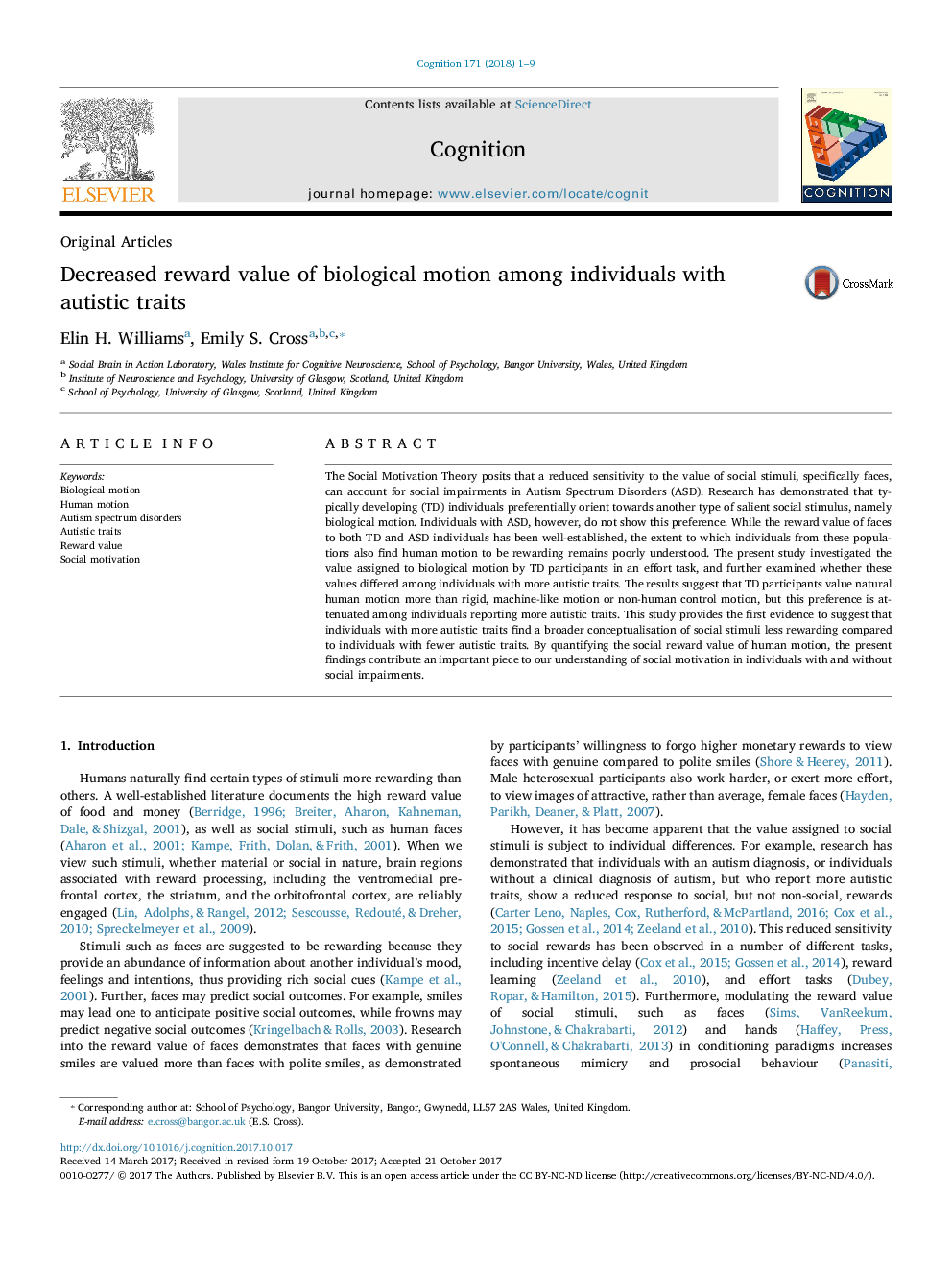ترجمه فارسی عنوان مقاله
ارزش پاداش حرکت زیستی در افراد مبتلا به صفات اوتیستی کاهش یافته است
عنوان انگلیسی
Decreased reward value of biological motion among individuals with autistic traits
| کد مقاله | سال انتشار | تعداد صفحات مقاله انگلیسی |
|---|---|---|
| 112698 | 2018 | 9 صفحه PDF |
منبع

Publisher : Elsevier - Science Direct (الزویر - ساینس دایرکت)
Journal : Cognition, Volume 171, February 2018, Pages 1-9
ترجمه کلمات کلیدی
حرکت بیولوژیکی، حرکت انسانی، اختلالات طیف اوتیسم، صفات اوتیستیک، ارزش پاداش، انگیزه اجتماعی،
کلمات کلیدی انگلیسی
Biological motion; Human motion; Autism spectrum disorders; Autistic traits; Reward value; Social motivation;

